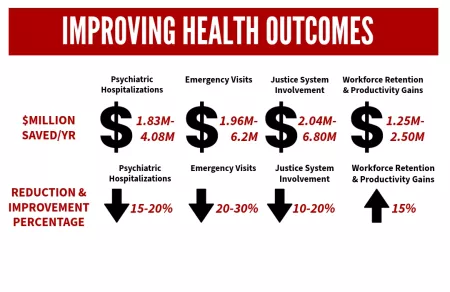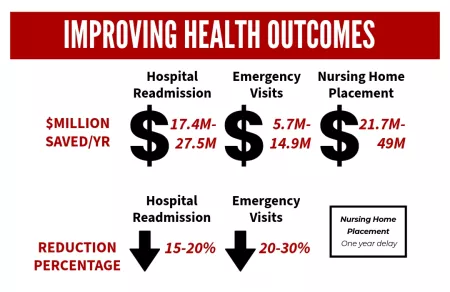The Impact of Geriatric and Behavioral Health Workforce Development in Kentucky
June 23, 2025At the Trager Institute, we are always striving to improve the health and quality of life of older adults, not only at our clinic but across the state. We accomplish this by training professionals to provide vital health care tailored to the specific needs of older adults, especially in underserved areas of Kentucky.
Last year, we received renewed funding for our Geriatric Workforce Enhancement Program (GWEP) to teach health care professionals how to deliver integrative, age-friendly care. We also help expand the state’s behavioral health workforce by training professionals and paraprofessionals across disciplines through our Behavioral Health Education and Training (BHWET) Program. Our BHWET program for professionals was recently approved for another round of funding.
These federal grants from the Health Resources and Services Administration are highly competitive, and to receive continued approval for them proves our programs work and are worth the investment.
The impact of GWEP and BHWET programs in Kentucky can be seen in critical workforce gains, improved access to geriatric and behavioral health care and reduced health care costs.
Behavioral Health Workforce Education and Training Program
Through the BHWET Program, we’re building a stronger, more accessible behavioral health system to address the behavioral health needs of 1.28 million adults in the Commonwealth.
Program goals
- Build Kentucky's behavioral health workforce
- Reduce health care and justice system costs
- Foster healthier families and communities
- Strengthen rural behavioral health systems
- Expand access to integrated behavioral health services
1.28 million adults in Kentucky have behavioral health needs.
We currently have 59 training sites, with many located in rural and underserved areas of Kentucky. Every year, we invest $490,000 to train 164 professionals and paraprofessionals who are in programs for psychiatric nursing, social work, counseling psychology, marriage and family therapy, peer support and community health work.
Why it works
Expanding the behavioral health workforce saves the state money and improves health outcomes by preventing psychiatric hospitalizations, emergency room visits and the involvement of the justice system while increasing workforce retention and productivity. For every dollar invested, $5-$13 is saved, adding up to $7–20 million annually.
Geriatric Workforce Enhancement Program
Kentucky currently has 860,000 adults over the age of 65, making up 19% of the population. With this number projected to increase to 1 million by 2030, it is time to transform health care for older adults and invest more in aging services that work. This is what our GWEP aims to do.
Program goals
- Building Kentucky's geriatric workforce
- Reducing health care costs
- Keeping seniors healthier and happier at home
- Strengthening rural health care systems
- Supporting families and caregivers
With 112 training sites across Kentucky, we train 3,153 health care professionals each year in age-friendly practices. These professionals—who come from medicine, nursing, pharmacy, dentistry, social work, caregiving and the community—learn in a collaborative environment to deliver high-quality, integrated care.
Why it works
Investing in Kentucky’s geriatric workforce and improving the quality of care for older adults keep our population healthier for longer. This reduces the costs incurred on the health care system—$46–$102 per dollar invested, or $70–$154 million each year—by helping prevent hospital readmissions and emergency room visits and delaying nursing home placement.
Taking action
Our work is made possible through federal funding from the Health Resources and Services Administration, but these funds are at risk of being cut. This is why is it increasingly important to advocate for these programs and vouch for their real-world impact. Every dollar invested in both BHWET and GWEP delivers millions in savings and improves access to quality behavioral health and geriatric care in Kentucky.
Contact your elected officials and let them know how vital programs like ours, and many others, are.


